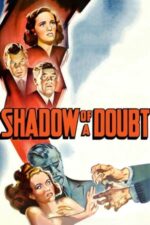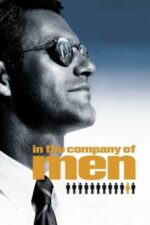When "Reform" Turns Toxic: Exploring Misogyny in Cinema
Okay, let’s talk about something a little uncomfortable, but incredibly important: misogyny on screen. It's not just about films that are overtly violent or exploitative (though those certainly exist and deserve scrutiny). What I find fascinating – and increasingly relevant given the conversations we’re having today – is how subtly, and sometimes even under the guise of “reform” or "protection," patriarchal anxieties and biases can be woven into a film's narrative.
Think about House of Whipcord. On paper, it sounds almost utopian: a progressive reformatory for young women, run by ex-cons and overseen by a retired judge. But that veneer of benevolence quickly cracks when you consider the power dynamics at play. The women are essentially prisoners, their lives controlled by men who believe they know what’s best – a classic paternalistic trope. It's not necessarily about overt cruelty; it's about the insidious nature of control disguised as care. It reminds me a little of how some early social work initiatives operated, with well-meaning intentions but ultimately reinforcing existing power structures.
This theme pops up again in Castle of Purity, where a man’s fear of female “immorality” leads him to imprison his family. It's an extreme example, sure, but it speaks to the anxieties that underpin so many narratives about women – the idea that they need to be contained, controlled, protected from themselves and the world. It’s a warped form of love, fueled by deep-seated misogyny.
Then you have films like Shadow of a Doubt, where suspicion and manipulation are used to undermine a young woman's agency. The film isn’t explicitly about misogyny, but it subtly explores how societal expectations and patriarchal structures can create an environment where women are vulnerable to exploitation and control.
Even something seemingly lighthearted like My Fair Lady deserves a closer look. While undeniably charming, the premise – a man believing he can "fix" a woman and elevate her through linguistic training – is inherently condescending. It reinforces the idea that a woman’s worth is tied to her ability to conform to societal standards of elegance and refinement.
And let's not forget films like In the Company of Men, which dives headfirst into toxic masculinity and the destructive consequences of misogynistic attitudes. It’s uncomfortable viewing, but it holds a mirror up to some pretty ugly truths about how men can project their insecurities onto women. Naked, with its raw portrayal of rage and alienation, also touches on this – albeit in a more chaotic and less overtly targeted way.
What all these films highlight is that misogyny isn't always a monster under the bed; it’s often woven into the fabric of our culture, disguised as progress or protection. It’s worth examining these narratives not just for their entertainment value but to understand how deeply ingrained these biases can be – and how far we still have to go in challenging them.
What do you think? Any other films that come to mind when you consider this theme?





































